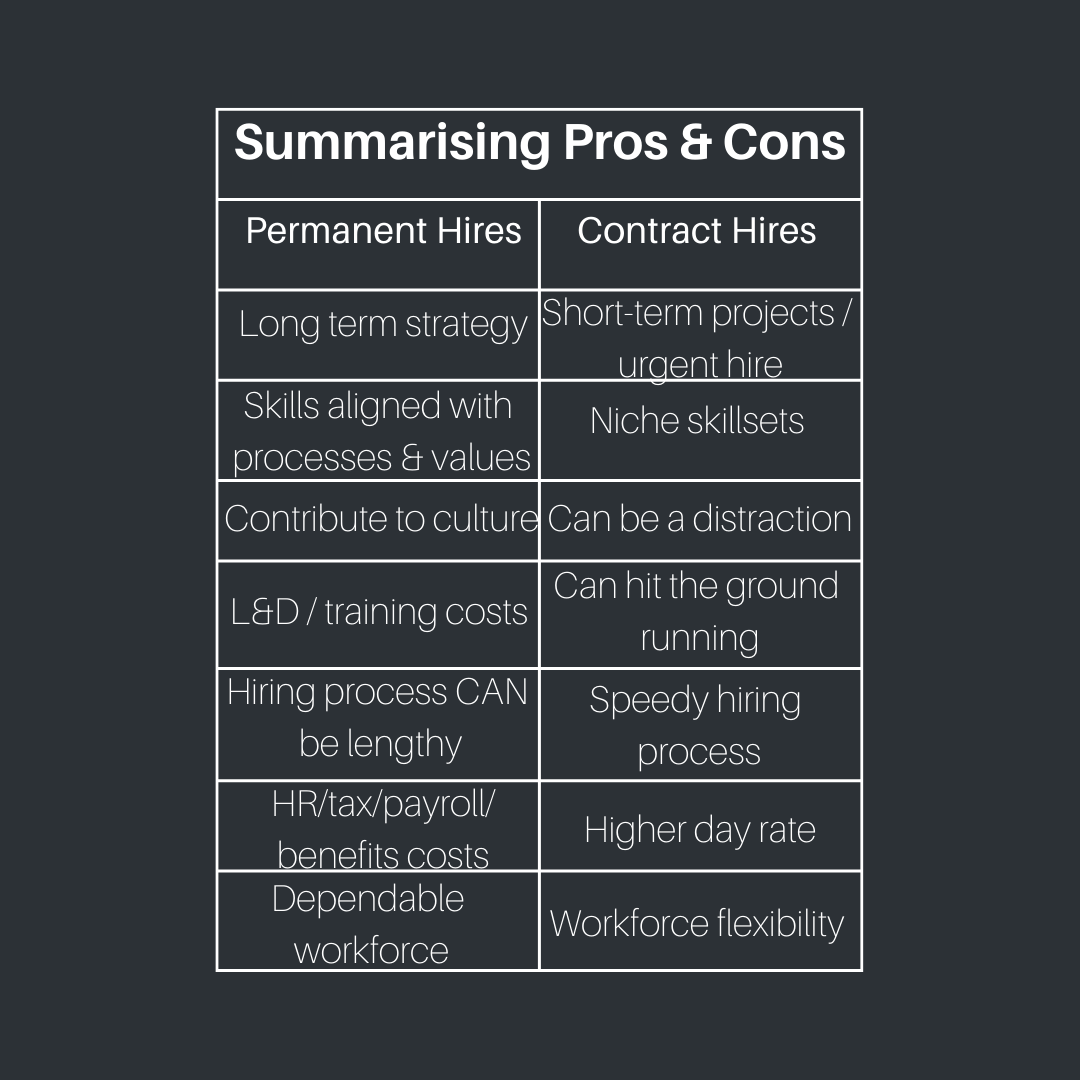
Wayne Brophy
Feb 21, 2019
Brexit and Recruitment: The pros and cons of Contract v Permanent hires
Do uncertain times call for a break from your usual hiring strategies? In the post-Brexit climate we are certainly seeing an increase in employers querying the pros and cons of contract versus permanent hires.
Post-Brexit uncertainty most definitely has many employers stuck in limbo. Is it worthwhile getting a contractor in for now? Or shall we wait it out a little longer? Will a contractor hire even fulfil my needs? As always, it’s not that straightforward.

Our Cost-to-Hire Calculator lets you quickly see how pay, benefits, on-boarding and training impact the 1st year costs - whether it’s a contractor or employee.
Contract v Perm employees - the pros & cons
The pros of contractors are often the cons of permanent employees and vice versa. So instead of listing the pros and cons of each, we’ve listed common business requirements and given a verdict on which one may be best.
Access to highly skilled staff
Contractors have taken the risky step of working for themselves. They back their skills and experience to get hired, time and again, and so you will often find the contractor pool full of candidates with coveted CVs and skillsets you may not be able to access on the permanent market.
Permanent staff are more likely to understand how to apply their skills to their company processes and values. And employers can upskill workers with the precise skills they need. However, this takes time.
However, as we discuss in our blog, Brexit and Recruitment: Are we facing a contractor bubble? in the wake of Brexit finding permanent staff with the right skillsets - or those that can adapt - is likely to prove much more difficult.
Our verdict: contractors
When culture is important
Hiring for cultural fit is increasingly important for businesses, who are beginning to recognise the effect it can have on business productivity and a company’s overall success, contractors can be hired to slot in with teams, but the fleeting nature of their work means that they can’t contribute long-term to company culture.
The verdict: permanent staff
Speed of Hire
Permanent hiring is often associated with a drawn-out recruitment process, yet it need not be. With tools such as video interviewing and effective screening for both skillsets and cultural fit, time-to-hire can be as little as three weeks.
However, that figure reduces to just 48 hours for contract staff. And contract staff don’t have notice periods.
The verdict: contractors IF the role is truly urgent
Investing in your future
A business is only as successful as its people. Whilst a contractor can help your business achieve goals, they take their skills - and any further experience they gain from delivering the project - with them.
The verdict: permanent staff
Hit the ground running
Contractors are brought in to deliver projects, generally for periods of six months or less. They’re therefore adept at hitting the ground running, without any onboarding process.
Our verdict: contractors
A job that may ruffle some feathers
Contractors are not there to build long-term relationships. Yes, they need to be able to build relationships with teams. However, sometimes difficult tasks - like change management or restructuring - are best delivered by someone from outside the organisation.
Our verdict: contractors
Costs
This is a close call. Contractors charge more for their expertise and the uncertainty of potential weeks or months without employment.
However, contractors can sometimes save businesses money. For starters, the real cost of a permanent employee comes with an additional third on top of their salary, by the time taxes, national insurance, pension contributions and holidays are factored in. Add to this the ability to scale up or down without employees waiting idly for something to do (and checking their phone for the fifth time that hour), then suddenly the gap doesn’t seem as wide.
The verdict: a draw
Brexit will certainly add a new challenge to employers already facing skills gap and fresh operational challenges.
What is the real cost to hire? How will increased training needs or increased salary demands affect new hires costs? How does this compare between employees and contractors? Find out quickly with our True Cost to Hire Calculator.


